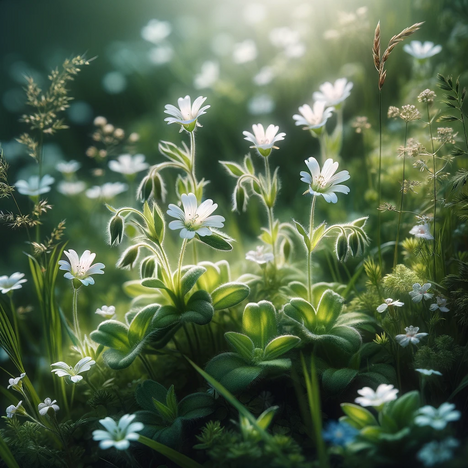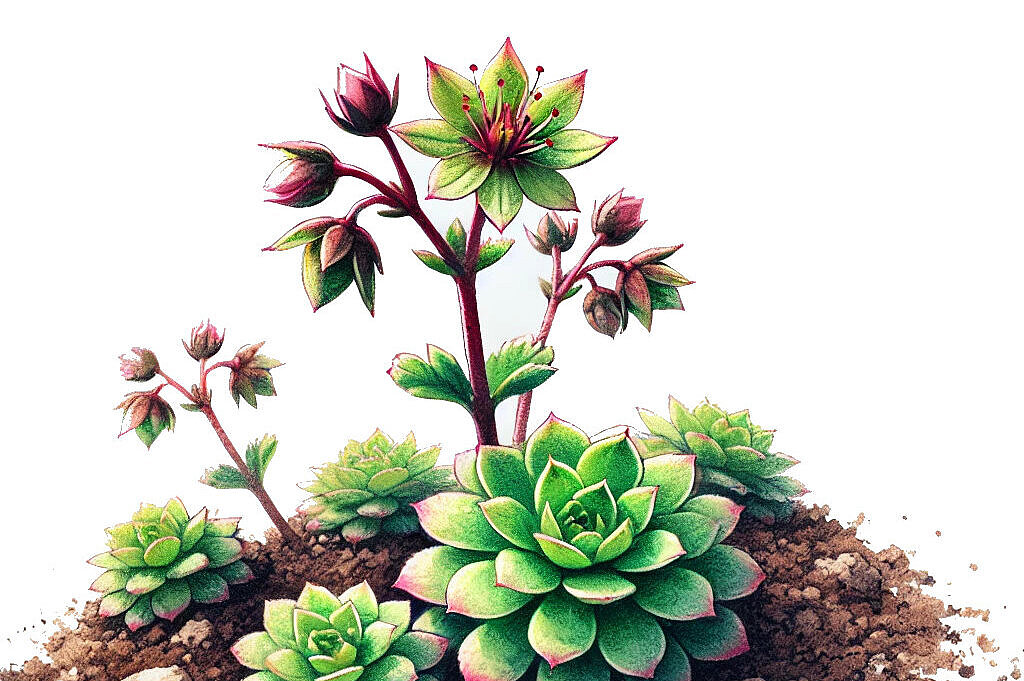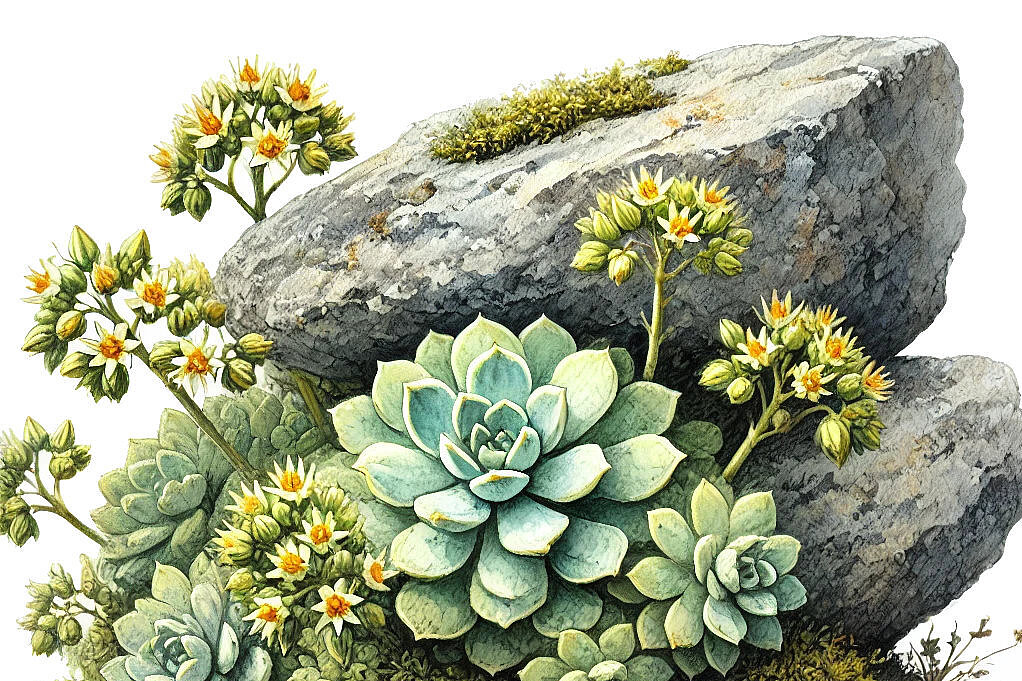Hornworts

In the diverse world of flora, dog owners often come across a genus of plants that can arouse both curiosity and concern: hornworts, known by the scientific name Cerastium. These robust plants, often perceived as inconspicuous, can be found in many gardens and wild landscapes. But what exactly are hornworts and what significance do they have for our four-legged friends? In this article, we take a deep dive into the world of hornworts, highlighting their properties, potential benefits and possible disadvantages for dogs.
What are hornworts (Cerastium)?
Cerastium belongs to the Caryophyllaceae family and comprises a large number of species that thrive in a wide variety of habitats. Hornworts are characterized by their small, white flowers, which are arranged in a star shape, and their dense, sometimes almost felt-like leaf structure. They are generally easy to care for and can grow in a wide variety of conditions, making them a widely used plant genus.
Benefits of hornworts for dogs
Natural curiosity and activity
One of the benefits of hornworts in a dog's environment is the encouragement of their natural curiosity. Exploring plants and grasses can be an enriching experience for dogs, as long as it is ensured that the plants are not poisonous.
Potential health benefits
Although direct health benefits of hornworts for dogs have not been extensively researched scientifically, many plants contain natural antioxidants and other bioactive compounds that can be potentially health-promoting. However, it is important to discuss any plant interaction with a veterinarian.
Disadvantages and potential dangers
Toxicity risk
A major disadvantage of exposing dogs to bugleweed is the lack of research into its toxicity. Although bugleweeds are not generally known to be toxic to dogs, caution is generally advised with plants. Individual sensitivity may vary and some parts of the plant may cause gastrointestinal upset if ingested.
Allergic reactions
As with any plant, there is a risk of allergic reactions to hornworts. Dogs can have individual reactions to certain plants or their pollen, which can lead to symptoms such as skin irritation, sneezing or eye irritation.
Important safety tips
- Exploring under supervision: Never let your dog explore unsupervised in areas where unknown plants grow.
- Know the local flora: Find out about the plants in your area and identify potentially dangerous plants.
Horehounds(Cerastium) are a common genus of plants whose interaction with dogs should be unproblematic in most cases. They offer potential benefits by stimulating the natural curiosity of animals and, if used correctly, could contribute to health diversity. However, caution is advised as the specific effect on dogs is largely unexplored and potential risks such as toxicity or allergic reactions should not be ignored. Responsible supervision and knowledge of the local flora are crucial to ensure the safety and well-being of your dog.
If you notice any signs of hypersensitivity or poisoning in your dog, you should see your vet immediately. We are not a substitute for a vet, but we try to be as accurate as possible. Every dog reacts differently and we recommend you get a second opinion or consult your vet if in doubt.
Stay healthy and take good care of your four-legged friend!😊
Similar to Hornworts
Saxifrage, which belongs to the genus Saxifraga, comprises a variety of species that are characterized by their adaptability to extreme growing conditions. Often found in alpine or rocky areas,...
Cushion phlox(Phlox subulata) belongs to the phlox family and is a perennial, ground-covering plant that is characterized by its dense and flat growth habit. It flowers in various colors, including...
Sedum, often known as stonecrop, is a genus of succulents comprising over 600 species. These plants are popular because of their undemanding care, drought tolerance and diverse shapes and colors....
Goosecresses (genus Arabidopsis), known for their single, white to light purple flowers, are members of the cruciferous family (Brassicaceae). They are widespread and popular for their easy-care...



